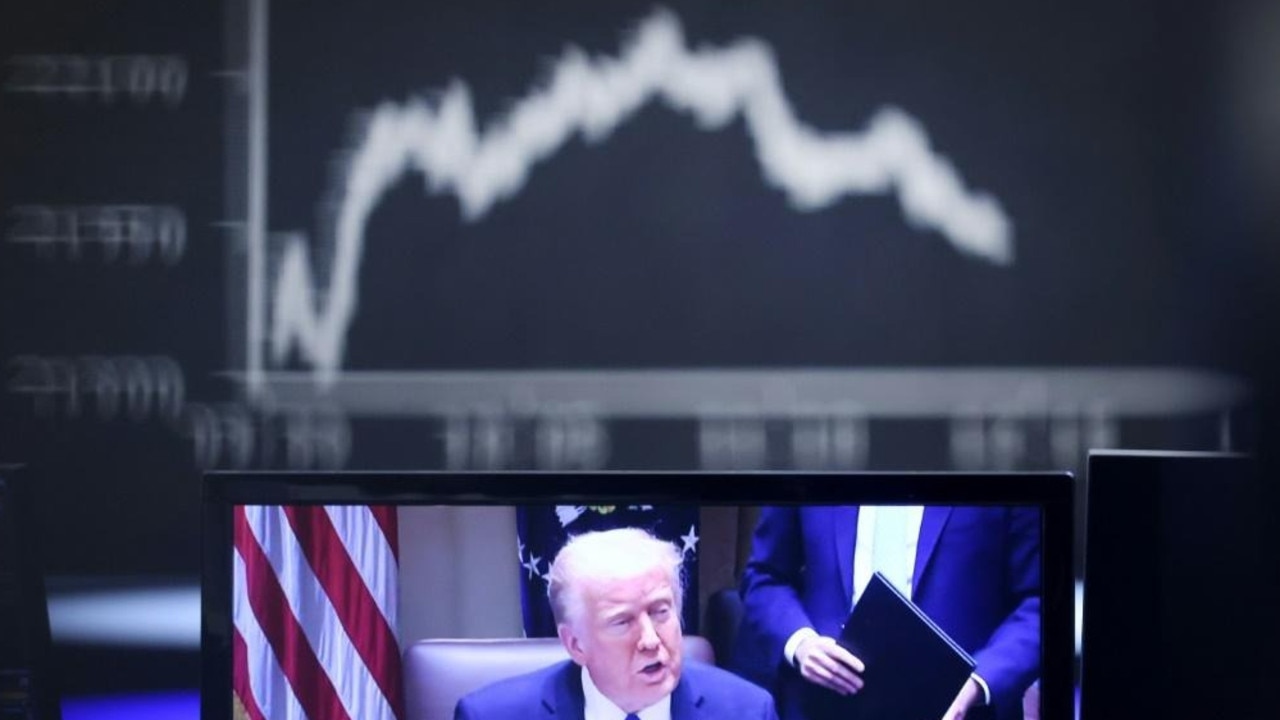Morrison’s battle of moral politics
The Prime Minister signalled from the start he would fight Labor on values.

Morrison won not just on the economy. He won on values. The first major speech he gave as Prime Minister, on September 6 last year in Albury, was about values, rituals and beliefs. If you overlook Morrison’s conception of values then you cannot understand the meaning of this year’s election or the nature of Morrison’s government.
The election contest between Morrison and Bill Shorten was not just about radically different policy agendas — they staged one of the most intense ideological struggles Australia has seen between conservative and progressive visions. The poll was the culmination of a contest over the Australian character running from Tony Abbott’s 2013 victory.
Writing in The Atlantic magazine after the British election, Yascha Mounk, from Johns Hopkins University and author of The People vs Democracy, said: “The rise of culture as the main cleavage of Western politics helps explain the slow death of social democratic parties across the West.”
Mounk said the defeat of Jeremy Corbyn was as much about his cultural attitudes as his economic program. The same can be said of Shorten’s defeat. As class rigidities fade and occupation no longer determines voting preference, the economic policy debate is shaped by cultural values as much as by financial interest.
The cultural contest on the economy is between aspiration and entitlement. It is between incentive and redistribution, between individual opportunity and state power. Cultural values are pervasive. They invade everything from the economy to immigration to the idea of social justice.
The significance of the 2019 election is that Morrison halted and turned back the Labor progressive bandwagon that appeared for much of the Turnbull government to be sweeping all before it.
Labor’s confidence it would prevail reflected its conviction that Australia had changed, that it was passing through the threshold of becoming a progressive nation and leaving behind the old-fashioned and out-of-date Liberal Party, the party Malcolm Turnbull himself was trying to modernise. Carriage of the same-sex marriage plebiscite in 2017 seemed to verify this dynamic view of history held by Shorten Labor and the progressive interest groups. They felt it offered only one interpretation: the tide of history was with them. That Morrison abstained rather than vote on that occasion merely confirmed this belief.
Morrison’s election victory in May was more than a surprise resurrection of the Coalition vote. Morrison won because his campaign better understood the Australian character and aspiration. It was a narrow victory that means the contest over values will remain tight into the future. Morrison’s less than convincing handling of the bushfire crisis underlines the many dimensions of the values debate and its fluctuating nature.
Because Morrison is a transactional politician and focused on delivery, it is easy to forget or overlook that he runs on values. Yet values underpin most things he does. Morrison is a threat to Labor because, like John Howard, he grasps its vulnerability and he can turn conservative cultural values into an offensive political weapon from nationalistic assertion to individualistic aspiration to family-anchored social stability.
Within days of becoming Liberal leader, Morrison went to Albury, a historic location in terms of Sir Robert Menzies’ founding of the Liberal Party, and outlined the values that would define his leadership. On fairness, for example, he said: “I believe in a fair go for those who have a go. I think that’s what fairness means in this country. If you put in, you get to take out and you get to keep more of what you earn.” It is the Protestant work ethic — people should reap what they sow.
Repudiating the Labor model of fairness that underpinned its tax policy at the election, Morrison said: “I don’t think that for someone to get ahead in life you’ve got to pull others down. I believe that we should be trying to lift everybody up at once.” Labor’s competing vision, he said, embodied “the politics of envy”, not aspiration.
Morrison was attacked for his view of fairness. But he signalled, from the start, he would fight Labor on its greatest strength — fairness — by propounding an alternative Morrison Liberal Party conception of fairness. This was a landmark statement since Labor had exploited fairness to virtually ruin the Abbott government five years earlier.
For years Shorten and Greens leader Richard Di Natale sounded like progressive preachers outbidding each other. Much of the nation’s political agenda was driven by their campaigns — the rights of minorities and LGBTI kids, killing the section 18C reform of the Racial Discrimination Act, attacking the government for tolerating the bullying of women and soft racism, obstructing the path to same-sex marriage, putting border protection before the humanitarian needs of refugees, pandering to the rich and privileged “big end of town” by offering them tax cuts and opposing the banking royal commission, denying the moral dimension of climate change action and appeasing the fossil fuel industries rather than acting to save the planet.
For years Australia’s political debate has been consumed by values. The idea that values were suddenly not relevant in the election campaign is a fantasy. Politics doesn’t work like that. One reason that many people, including this writer, felt the Liberal Party would probably lose the election was because it lacked sufficient cultural power to prevail in debates focused around morality and values.
The tactical skill of progressives has been impressive to watch. They launch every campaign from human rights to health to refugees to education on a moral basis. The problem for the conservative side of politics was that Abbott was too ideologically aggressive and Turnbull was actually a progressive anyway.
But Morrison was different, a down-to-earth, footy-loving, community-based politician from the Shire who preached values by example. His family-oriented 2019 campaign launch was the cultural opposite of Shorten’s high-profile celebrity-style event.
Joined on stage by his wife, Jenny, and his family, Morrison said his parents had been married for 56 years: “They saved, they planned, they sacrificed.” Invoking family and community virtue, Morrison captured the life story of many Australians: “Get an education, get a job, start a business, take responsibility for yourself, work hard.”
His main purpose was to provide the Liberal government with the moral foundation he believed it had lacked to that point. Morrison offered himself and his personal story as the leader for ordinary Australians who lacked power, influence and any media voice. The pitch, at every point, was to the virtuous middle class who didn’t deserve to be victims of Shorten’s asset-taxing, big-spending experiment based on the superiority of state power. Every word and image reflected values and virtues.
Labor’s Emerson-Weatherill report on its 2019 campaign defeat complained that the party never revised its strategy after Morrison replaced Turnbull. Such a failure seems incomprehensible yet there is an explanation. It was not just Labor’s supreme overconfidence but the bedrock progressive belief that Australian conservatives were devoid of any credible moral framework that could relate to the community.
The depth of this progressive mindset has been brilliantly analysed based on survey work by American social psychologist Jonathan Haidt of New York University, who visited Australia this year and saw Morrison’s staff among others.
Haidt’s 2012 book The Righteous Mind is the defining text on the moral foundations of politics and the culture war in Western democracies between conservatives and progressives. Haidt’s work offers deep insights into Australia’s 2019 election and the nature of Morrison’s prime ministership in his recruitment of moral issues.
Consider the critique of Morrison by progressive interest groups, lobbies and media — he is depicted as playing the politics of security, race and religion, and being a former advertising executive devoid of deep policy thought. Climate change is a reflex trigger with an emotional Shorten denouncing Morrison in the campaign as “a coal-wielding climate-denier, cave-dweller”.
This goes to the heart of Haidt’s argument: progressives cannot comprehend the moral foundations of conservatism. In this sense they do not grasp the deeper reason for their defeat. Changing economic policy can help but that cannot solve the values problem.
This leads to the next step in Haidt’s analysis that goes much further: while it is American-based and nearly a decade old, Haidt finds that conservatives are actually far more in touch with the moral sentiments of the community than progressives. The subsequent election victories of Donald Trump, Boris Johnson and Morrison suggest some validation of this theory.
While Haidt began as a liberal, his research confirmed the truth enunciated by one of the founders of conservative morality, Edmund Burke, in his famous claim: “To love the little platoons we belong to in society is the first principle of public affections. It is the first link in the series by which we proceed towards a love to our country and to mankind.”
What is the crucial link here? It is between parochialism and patriotism, the character traits that Morrison champions.
Haidt said: “Adam Smith argued similarly that patriotism and parochialism are good things because they lead people to exert themselves to improve the things they can improve. Robert Putnam has provided a wealth of evidence that Burke and Smith were right. Anything that binds people together into dense networks of trust makes people less selfish.”
The central flaw in the progressive mindset, according to Haidt, is that in seeking to help minorities and victims, they insist on far-reaching social changes “that weaken groups, traditions, institutions and moral capital”. Much of the voting public now sees these flaws. Haidt warns that if you want to reform an organisation or society and fail to “consider the effects of your changes on moral capital, you’re asking for trouble”. He says this weakness is “the fundamental blind spot” of the left and explains “why liberal reforms so often backfire”.
Moral capital, according to Haidt, is the interlocking values, virtues, norms and institutions that hold society together and prevent it degenerating into individual selfishness where people refuse self-sacrifice for the common good. He offers a long list from the US experience where efforts to help the inner-city poor have led to a weakening of marriage, families and social structure.
Haidt warns that merely “emphasising differences makes many people more racist, not less”. He says the moral foundations for conservatives are respect for order, authority, hierarchy and tradition — sentiments the left largely detests — but sentiments closely tied to individual life experience.
Haidt quotes the lament of Democrats claiming that Republicans have duped rural and working-class Americans into voting Republican “against their economic interest” when, in fact, they are voting “for their moral interest” and know exactly what they are doing. Sounds familiar? Haidt says such people have decided “they don’t want their nation to devote itself primarily to the care of victims and the pursuit of social justice”.
Moving to the Australian experience, the Emerson-Weatherill review documented how much Shorten’s values appealed to the better-off at the expense of the traditional ALP voter. The review said the average swing to Labor in the 20 seats with the highest proportion of university graduates on high incomes was 3.78 per cent while the swing against Labor was 4.22 per cent in seats with the lowest proportion of university graduates.
Given Labor’s redistribution policies, people voted against their economic interest at the 2019 election. Why did this happen? The point is obvious: people voted according to their moral interest. Sometimes this was nothing more than an inclination to back Morrison because of his family life portrait. But other voters firmly decided Labor’s progressive values were no longer their values.
Shorten paid a high price for his embrace of progressive ideology. It is measured in the loss of low-income working people, vulnerable workers in the regions and outer-metropolitan areas, coalminers, Christians and Queenslanders. This was the electoral dividend Morrison sought from his strategy and that he will continue to pursue.
In his Albury speech, his election speeches and his recent Lowy Institute address, Morrison sets out at length the moral foundations of his prime ministership. They don’t get much media attention because the progressive media, suffering from the malaise identified by Haidt, doesn’t acknowledge that conservatism has any moral foundations and usually depicts such appeals as based in populist, sexist, climate denial and racist ploys.
“I want an even stronger Australia based on values,” Morrison said in Albury. His values centre on family, community, jobs, personal responsibility and nationalism. “As Australians, our goal is to make a contribution not to seek one,” Morrison said.
In his Lowy Institute speech, Morrison championed a foreign policy based on regional engagement, the US alliance and free trade — but he followed Howard in a nationalistic rejection of efforts to put pressure on Australia to conform to the UN norms around climate change policies.
This reminds that the two major challenges Morrison will face in guiding the politics of morality concern climate change and the Religious Discrimination Act. Either, if mishandled, could damage his personal standing. So far Morrison has been astute on the religious issue — open about his faith but not seeking to convert others.
The bottom line is apparent: winning on values is no substitute if your policies, notably your economic policies, are failing. But the logic of Haidt’s analysis points to Morrison’s superior position on values over Labor.
Haidt identifies six systems that constitute the foundations for political morality — they are care (looking after those who are suffering), fairness (seeking a just society), liberty (ensuring people and minorities enjoy their freedom), loyalty (finding groups that work together), authority (responsibility from placement in a hierarchy) and sanctity (moral boundaries based on ethics and views of humanity.)
He found progressive morality derives from the first three foundations: care, fairness and equality with liberals largely rejecting the next three foundations. By contrast, conservatives rated on all six foundations. In short, the problem with the progressive view of political morality is its narrow base — it is all about (and typically only about) compassion, social justice and equity.
Progressives win on these qualities. But that’s not enough because the public has a far wider view of morality. Haidt’s advice to Democrats is “to stop dismissing conservatism as a pathology and start thinking about morality beyond care and fairness”. He says the defective liberal understanding of political morality is why the Democrats have “had so much difficulty connecting with voters since 1980”.
Haidt highlights the astonishment of progressives at his findings: that conservatism is not only an alternative moral vision but a moral vision with a wider appeal to the American community. A successful society will value self-control over self-expression, duty over rights and loyalty to one’s groups over concerns for out-groups. The lesson for Australia is that values and morality are pervasive in our politics but far more subtle and complex than you might think.




The dominant political event of 2019 was Scott Morrison’s self-described “miracle” election victory, and while this is widely seen as a triumph of economic policy over Labor, there is almost no recognition of the true nature of this contest — as a battle of ideology and values.